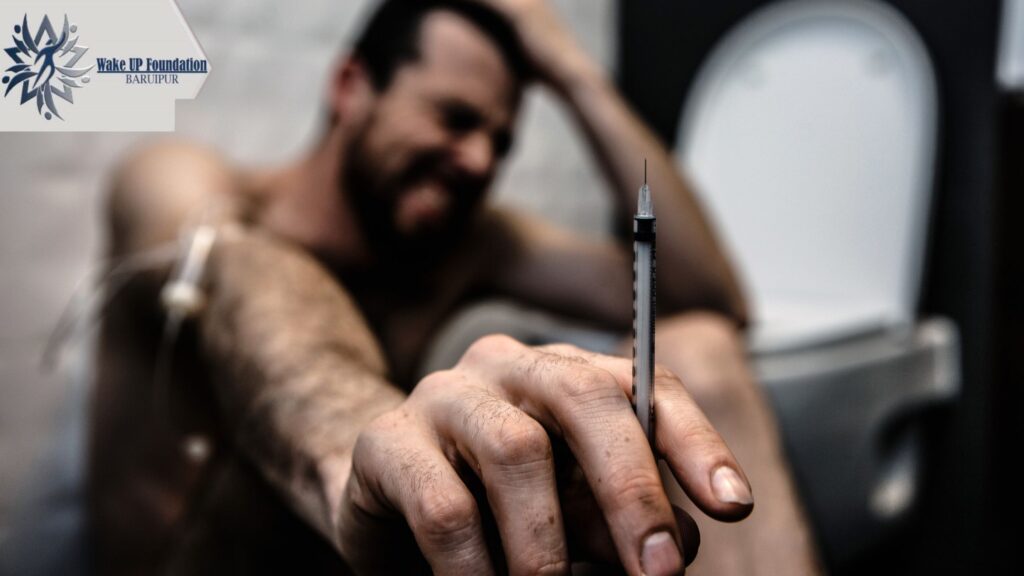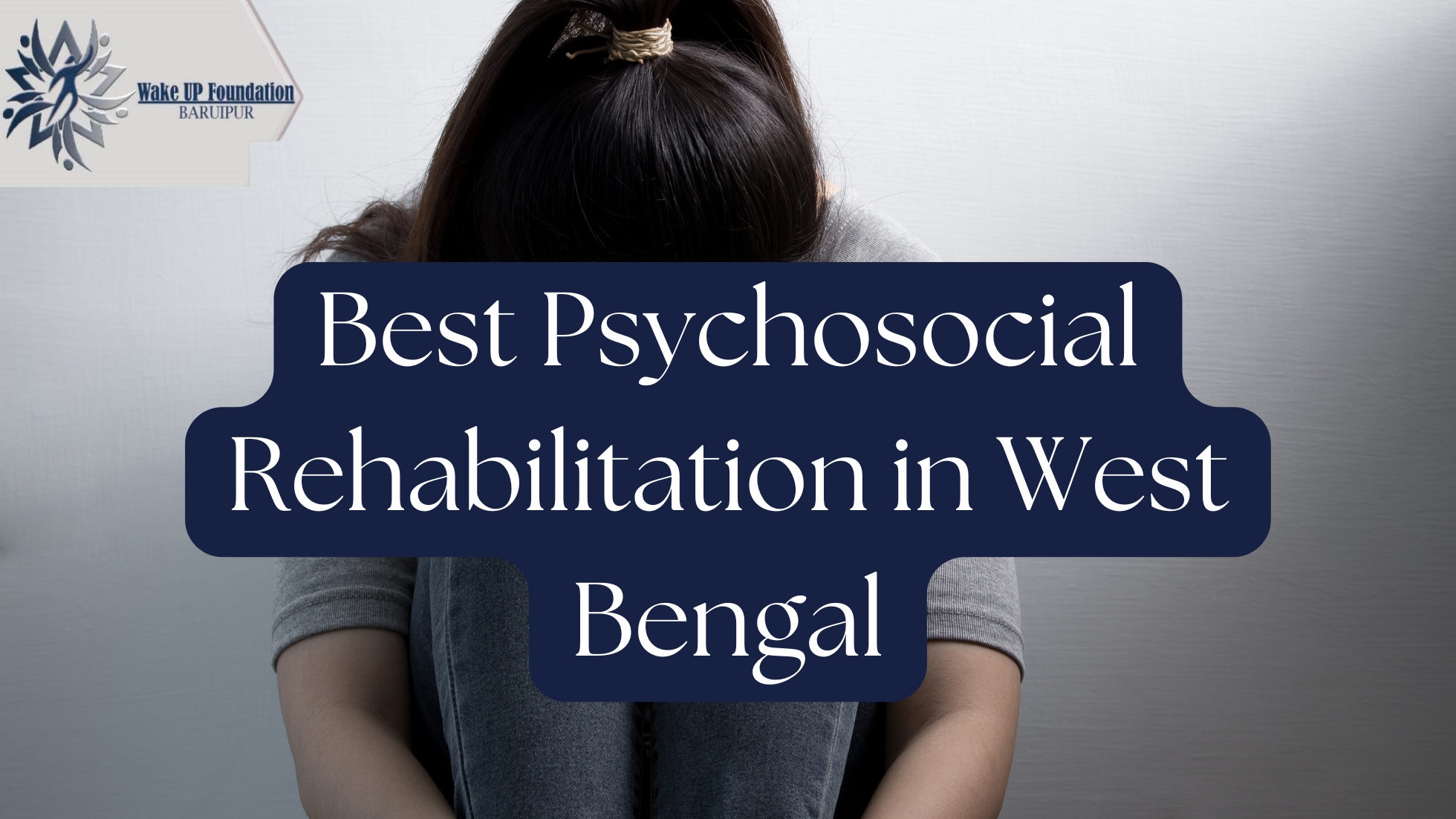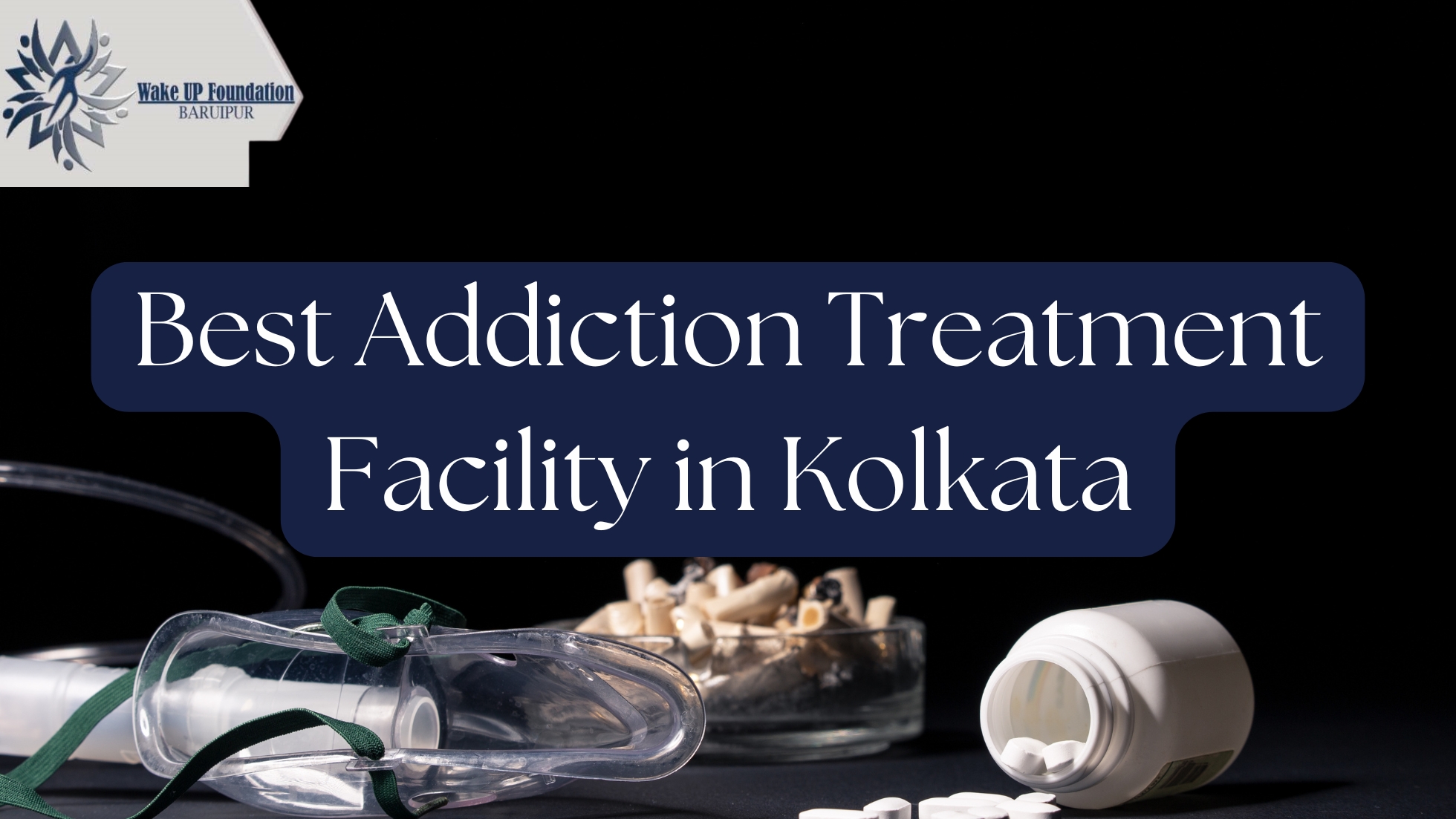Psychosocial rehabilitation plays a transformative role in supporting individuals with mental health challenges, empowering them to regain independence, reconnect with their communities, and live meaningful, fulfilling lives. In West Bengal, the demand for these vital services continues to rise, as awareness surrounding mental health steadily grows and more individuals seek guidance for themselves or their loved ones. In this blog, we’ll explore the impact of psychosocial rehabilitation in West Bengal.
Remember, at the Wake Up Foundation, we stand at the forefront of this movement, championing a compassionate, whole-person approach to mental wellness. Our mission is to offer comprehensive care, resources, and direction to those navigating the complexities of mental illness. Whether it’s rebuilding confidence, fostering social skills, or supporting recovery through therapy and community integration, we’re here to guide every step. Our centre is transforming lives, and individuals can take proactive steps toward recovery and lasting emotional well-being.
Key factors that contribute to psychosocial issues
| Cause | Impact |
|---|---|
| Biological Factors | A person’s genes can increase their chances of having mental health issues. Also, imbalances in brain chemicals and neurotransmitters can lead to psychological disorders. |
| Psychological Factors | Negative thoughts, low self-esteem, and trouble managing stress can cause various social and emotional issues. |
| Social Factors | Poverty, social discrimination, isolation, and a lack of support networks greatly harm mental health and well-being. |
| Life Experiences | Traumatic events, neglect, abuse, or significant life changes like bereavement or job loss are critical in developing psychosocial problems. |
How Bad Is the Situation and What Do the Numbers Reveal?
Mental health disorders are not just a personal struggle; they represent a global crisis, affecting millions of lives and communities. The statistics speak volumes, underscoring the urgency for stronger interventions, greater awareness, and accessible support systems. That’s precisely why the Wake Up Foundation, the leading Psychosocial Rehabilitation Centre in West Bengal, is stepping up to meet this growing need with compassion, professionalism, and purpose.
Global Mental Health Statistics:
- Prevalence: Nearly 1 in 5 people worldwide are living with a mental health condition, an estimated 970 million individuals.
- Early Onset: Alarmingly, 50% of all mental health conditions begin by age 14, and 75% by age 24.
- Mortality Rate: Mental illnesses account for roughly 8 million deaths annually, making up 14.3% of global deaths.
- Post-COVID Surge: Rates of anxiety and depression skyrocketed in the wake of the COVID-19 pandemic.
Focus on Depression and Anxiety
- Depression: Approximately 193 to 246 million people worldwide (around 28%) exhibit symptoms of depression.
- Anxiety Disorders: These have surged by 25%, now affecting more than 374 million individuals globally.
The Indian Mental Health Landscape
- People Affected: Between 60 to 70 million Indians are currently living with mild to severe mental health disorders.
- Suicide Rates: India records over 260,000 suicides annually, with an average rate of 10.9 per 100,000 people, one of the highest globally.
These numbers are not just data points; they represent real people, real families, and real lives at risk. The Wake Up Foundation is committed to changing this narrative in West Bengal and beyond by offering psychosocial support, professional rehabilitation, and a path toward hope.
Key Benefits of Psychosocial Rehabilitation in West Bengal
Psychosocial rehabilitation plays a transformative role in improving mental health and restoring the lives of those battling addiction and psychological challenges. Tailored programs target conditions such as depression, anxiety, schizophrenia, and bipolar disorder, offering individuals the tools, support, and structure they need to thrive.
Beyond mental health treatment, the best rehabilitation centres in West Bengal offer a host of impactful benefits:
1. Enhanced Social Skills
Participants engage in group therapy and structured social interactions that develop communication, conflict-resolution, and problem-solving abilities. These skills build confidence, improve relationships, and strengthen self-esteem.
2. Increased Independence
Rehabilitation programs teach practical life skills. from cooking and budgeting to time management, empowering individuals to take charge of daily responsibilities and feel a renewed sense of autonomy.
3. Better Employment Opportunities
Through vocational training and job placement services, individuals are equipped to re-enter the workforce. Gaining meaningful employment not only builds financial stability but also restores dignity and purpose.
4. Stronger Support Networks
By involving families and community support systems, these programs create a nurturing environment for sustained recovery. Family counselling fosters understanding, while peer support offers solidarity and encouragement.
5. Fewer Hospitalisations
With consistent support and effective symptom management, individuals experience fewer relapses and hospital stays, improving long-term outcomes and reducing pressure on healthcare systems.
6. Holistic Healing Approach
Psychosocial rehabilitation addresses the whole person, mind, body, and spirit. Programs may include yoga, mindfulness practices, nutritional guidance, and art therapy, ensuring well-rounded recovery.

What are the Possible Cures for Psychosocial Horrors?
There is no universal “cure” for psychosocial problems; however, various effective treatments and interventions can greatly enhance the quality of life for those facing these challenges. At Wake Up Foundation, we focus on several key approaches to support individuals in their journey toward improvement:
| Type | Method / Treatment | Purpose |
|---|---|---|
| Therapy | Cognitive Behavioural Therapy (CBT) | Identifies and transforms negative thoughts and behaviours. |
| Dialectical Behaviour Therapy (DBT) | Teaches coping skills for managing emotions, stress, and relationships. | |
| Interpersonal Therapy (IPT) | Addresses relational issues to improve communication and emotional well-being. | |
| Medication | Antidepressants | Treats symptoms of depression and anxiety disorders. |
| Antipsychotics | Manages schizophrenia and bipolar disorder symptoms. | |
| Mood Stabilizers | Helps regulate mood fluctuations in bipolar disorder. | |
| Psychoeducation | — | Educates individuals and families about mental health, reducing stigma and improving outcomes. |
| Support Groups | — | Provides peer support and shared experiences in a safe group setting. |
| Vocational Training | — | Builds employment skills to encourage independence and restore confidence. |
| Social Skills Training | — | Enhances communication, problem-solving, and interpersonal relationships. |
| Holistic Approaches | Mindfulness & Meditation | Promotes relaxation, focus, and emotional balance. |
| Exercise & Nutrition | Strengthens mental wellness through physical health and balanced habits. | |
| Assertive Community Treatment | — | Delivers intensive, community-based care and family involvement for consistent recovery support. |
| Family Therapy | — | Strengthens family communication and creates a supportive environment for healing. |
| Crisis Intervention | — | Provides immediate care and stabilisation during mental health emergencies. |
Conclusion
The Wake Up Foundation’s commitment to psychosocial rehabilitation near West Bengal reflects exactly the kind of bold, compassionate leadership mental health care needs today. By focusing not just on symptom treatment, but on life restoration, we are helping individuals re-enter society not as patients, but as empowered community members. Our holistic model, blending therapeutic care with real-world skills and social reintegration, is a blueprint for sustainable transformation. It doesn’t just benefit individuals in distress; it nurtures a healthier, more inclusive society for everyone.
FAQs
- What is psychosocial rehabilitation?
- Psychosocial rehabilitation is a holistic approach that empowers individuals with mental health conditions to develop life skills, build confidence, and regain independence. It supports them in leading meaningful, fulfilling lives within their communities.
- Who can benefit from these programs?
- These services are designed for individuals facing mental health challenges, such as depression, anxiety, schizophrenia, or bipolar disorder, who may struggle with everyday tasks, social interactions, or work-related activities.
- What kind of services are available in psychosocial rehabilitation?
- Programs typically include therapeutic interventions, vocational and life skills training, social integration activities, support groups, psychoeducation, and wellness practices like mindfulness, physical activity, and nutrition support.
- How is psychosocial rehabilitation different from regular therapy?
- Unlike traditional therapy, which primarily addresses emotional or psychological issues, psychosocial rehabilitation offers a more comprehensive plan. It focuses not only on mental wellness but also on practical, social, and occupational functioning to support long-term recovery.
- Are family members involved in the rehabilitation process?
- Yes. Many programs in West Bengal actively involve families through therapy and education. This helps strengthen communication, encourages understanding, and creates a supportive environment for long-term success.





